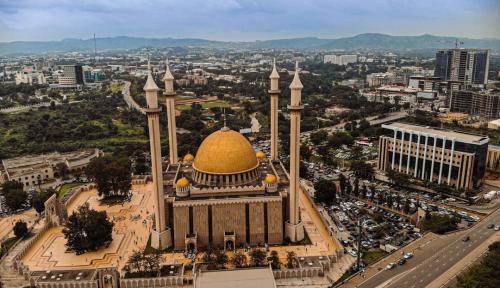The Creation of Abuja: Nigeria’s Modern Capital
In the heart of Nigeria, Abuja stands as a symbol of the nation’s vision for unity and strategic development. Established as Nigeria’s new federal capital in 1991, Abuja represents more than just a change of administrative centers—it embodies a grand plan for a unified and progressive Nigeria.
When Was Abuja Created?
The Birth of Abuja
Before Abuja, Lagos was Nigeria’s bustling commercial hub and its capital. Yet, as Nigeria expanded, the need for a new capital city grew—a city that could symbolize neutrality and unity, away from regional or ethnic biases. The decision was made to build a city that would serve as a central point for the entire nation, reflecting Nigeria’s aspirations for national cohesion.
Abuja was officially established in 1976 and was meticulously developed throughout the 1980s. The city officially became Nigeria’s capital on December 12, 1991, succeeding Lagos.
Planning and Development
The creation of Abuja was not a mere relocation but a well-thought-out project. International architects and urban planners designed the city with a focus on modern infrastructure, wide roads, and green spaces. This planning aimed to foster economic growth, cultural exchange, and efficient administrative functions.
The Decision to Relocate
In 1976, the Nigerian government decided to move the capital to a more centrally located city for several reasons:
- Geographical Balance: Nigeria’s previous capitals were located in the south. A central location is aimed at balancing geographic representation.
- Overcrowding and Infrastructure: Lagos was becoming overcrowded. The new city was envisioned as a modern, well-planned space with robust infrastructure.
- Symbolic Unity: Abuja was intended to symbolize unity, overcoming regional, ethnic, and religious divisions.
The Planning Phase
- 1980: Architect Ibrahim Haruna was appointed to lead the design and planning of the new capital.
- 1981: The Federal Capital Development Authority (FCDA) was established to oversee Abuja’s development.
- 1982: The master plan for Abuja was unveiled, emphasizing green spaces, wide roads, and well-defined districts.
Construction and Development
- 1980s: Construction began, transforming the rocky landscape into a bustling city.
- Infrastructure: Key infrastructure such as roads, utilities, and public buildings were developed.
- Landscaping: Abuja’s distinctive features, including the iconic Aso Rock, became central to its identity.
Architectural Highlights
- Three Arms Zone: Home to the Presidential Complex, National Assembly, and Supreme Court.
- Central Business District: Features high-rises, banks, and commercial centers.
- Maitama: is an upscale residential area.
- Garki: A diverse neighborhood.
- Asokoro: Predominantly houses diplomats and government officials.
A Symbol of National Unity
The creation of Abuja marked a pivotal moment in Nigeria’s journey towards unity and balanced development. It represents a commitment to decentralize power and ensure equitable growth across Nigeria’s diverse regions. Abuja now stands as a melting pot of cultural diversity, welcoming people from all walks of life.
Growth and Transformation
Abuja has rapidly evolved into a vibrant metropolis, attracting businesses, diplomats, and tourists. Its skyline, featuring modern skyscrapers and government buildings, reflects the city’s growth and strategic importance. Abuja is also a hub for international conferences, diplomatic missions, and cultural events.
Key Takeaways
- Establishment: Abuja was officially designated as Nigeria’s capital on December 12, 1991.
- Planning: The city was meticulously planned with a focus on modern infrastructure, green spaces, and strategic development.
- Symbolism: Abuja represents Nigeria’s commitment to unity, neutrality, and balanced development.
- Growth: The city has transformed into a bustling metropolis, serving as a major hub for business, diplomacy, and culture.
Frequently Asked Questions About Abuja
1. What is Abuja known for?
Abuja is known as Nigeria’s capital city, chosen for its central location and neutrality. It serves as the country’s political, administrative, and diplomatic center.
2. When was Abuja created?
Abuja was officially established as Nigeria’s capital on December 12, 1991, succeeding Lagos.
3. Who designed Abuja?
The city was designed by a team of international architects and urban planners, including the renowned Japanese architect Kenzo Tange.
4. What is the population of Abuja?
As of recent estimates, Abuja has a population of over 3 million people, with ongoing urbanization and growth.
5. What languages are spoken in Abuja?
English is the official language, but various Nigerian languages are also spoken due to the city’s multicultural nature.
6. What are the main attractions in Abuja?
Notable attractions include Aso Rock, the National Mosque, the National Christian Centre, Millennium Park, Abuja National Stadium, and the arts and crafts markets.
7. Is Abuja safe for tourists and residents?
Abuja is generally considered safe, with a visible security presence and relatively low crime rates compared to other major Nigerian cities.
8. How do I get to Abuja?
Abuja is accessible by air through Nnamdi Azikiwe International Airport and by road via a network of highways.
9. What is the climate like in Abuja?
Abuja has a tropical savanna climate, with a wet season from April to October and a dry season from November to March. Temperatures are generally warm throughout the year.
10. Are there cultural festivals in Abuja?
Yes, Abuja hosts various cultural festivals, such as the Abuja Carnival, which celebrates arts, culture, and creativity.
Conclusion
Abuja stands as a testament to Nigeria’s aspirations for unity, progress, and inclusive development. Since its establishment in 1991, it has grown into a dynamic city that balances modernity with cultural heritage. Abuja’s creation reflects Nigeria’s commitment to national integration and development, making it a true emblem of a modern African capital.







